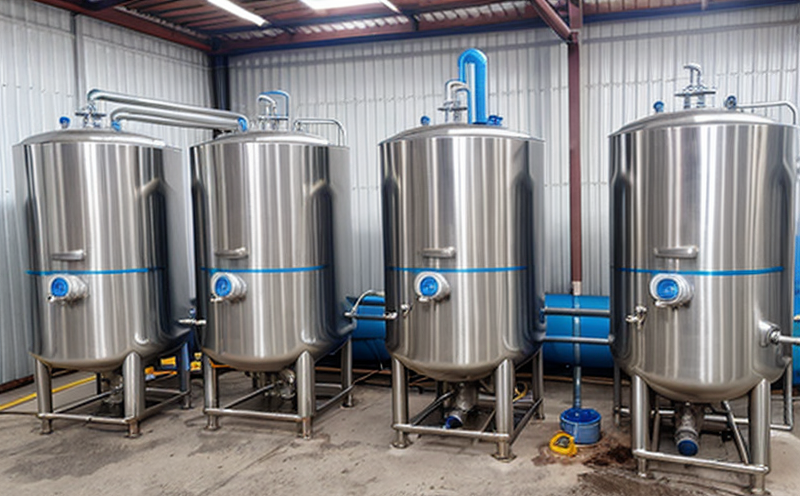ASTM D512 Total Chloride Content Test in Boiler Water
The ASTM D512 Total Chloride Content Test is a critical analytical procedure used to determine the chloride content of boiler water. This test is essential for ensuring the quality and safety of boiler systems, which play a vital role in industrial processes across various sectors including power generation, manufacturing, and chemical processing.
Chloride ions are known to cause corrosion in boilers if present in excessive amounts. The presence of chloride can lead to localized pitting, scaling, and ultimately reduce the lifespan and efficiency of boiler equipment. Therefore, monitoring the chloride content is crucial for maintaining optimal operating conditions and extending the service life of these systems.
The ASTM D512 test method provides a standardized approach for quantifying total chloride in water samples using potentiometric titration with silver nitrate solution as the indicator reagent. This method ensures consistent results across different laboratories, which is particularly important given the regulatory requirements and safety considerations associated with boiler systems.
Typically, this test involves collecting representative samples of boiler water from various points within the system. Sample preparation includes dilution to ensure that the chloride concentration falls within the linear range of the calibration curve. The sample is then titrated using a standard silver nitrate solution until a faint pink color persists for 30 seconds.
The amount of silver nitrate required to reach this endpoint directly correlates with the chloride content in the water sample, allowing for accurate determination via calculation based on the stoichiometric relationship between chloride and silver ions. This quantitative analysis provides valuable insights into potential issues related to chloride levels within boiler systems.
It is important to note that while ASTM D512 focuses specifically on total chloride measurement, it does not address other contaminants such as dissolved oxygen or pH balance which could also impact boiler performance. However, understanding the complete water chemistry remains crucial for comprehensive management of boiler operations.
In summary, performing the ASTM D512 Total Chloride Content Test offers significant benefits by providing precise measurements necessary to safeguard against corrosion risks and optimize operational efficiency. By adhering to this standardized procedure, organizations can ensure compliance with relevant regulations while enhancing overall equipment reliability and longevity.
Scope and Methodology
| Step | Description |
|---|---|
| Sample Collection | Representative samples of boiler water are collected from multiple locations within the system. |
| Dilution | Water samples are diluted to ensure chloride concentrations fall within the linear range of the calibration curve. |
| Titration Setup | A calibrated burette containing silver nitrate solution is prepared for titration. |
| Titration | The sample is titrated against the silver nitrate until a faint pink color persists for 30 seconds. |
| Calculation | The chloride content is calculated based on the volume of silver nitrate used during titration and the known stoichiometric relationship between chloride and silver ions. |
Customer Impact and Satisfaction
- Ensures compliance with industry standards and regulations.
- Reduces the risk of equipment failure due to corrosion caused by high chloride levels.
- Promotes longer operational periods between maintenance intervals, enhancing overall efficiency.
- Supports the development of effective water treatment strategies tailored specifically for boiler systems.
- Aids in identifying potential issues early on, allowing for proactive interventions before they escalate into larger problems.
Use Cases and Application Examples
This test is widely utilized by various industries where high-quality boiler water is essential. Some key applications include:
- Power Generation: Ensuring consistent performance of steam turbines.
- Manufacturing: Maintaining product quality through reliable production processes.
- Chemical Processing: Guaranteeing optimal reaction conditions in chemical reactors.
By implementing ASTM D512 Total Chloride Content Test, companies can achieve greater control over their water treatment practices, leading to improved operational efficiency and reduced downtime.





